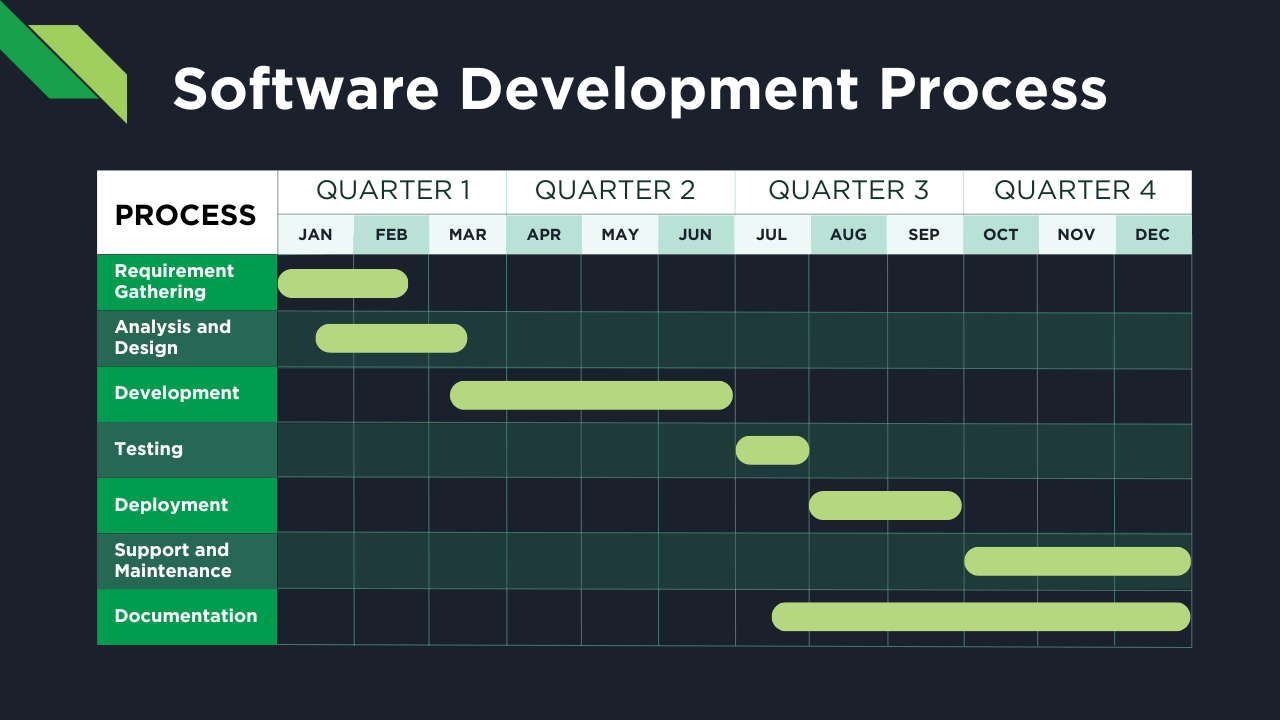Last Updated on 2025-06-25
Nowadays, businesses take advantage of offshoring and its benefits, like cost savings. So, let’s define the meaning of an offshore team. We’ll also see how entrepreneurs can ensure productivity even when operating in another country.
Since the advent of technology, companies have seen the advantages of telecommuting. Qualified professionals from all over the world can work away from the traditional corners of the company headquarters.
The pandemic has underscored the importance of this flexibility, as the person only needs a stable internet connection and digital resources to become part of a remote team. This adaptability, which fosters employee loyalty by accommodating their circumstances, has been especially helpful for many international organizations who find it hard to find local talent during such disruptive times.
This is especially true for industries seeking specific qualifications, such as software development or data management. Thus, it is unsurprising that business owners hire an offshore team for expansions. Aside from access to a wider talent pool, it significantly reduces your overhead costs.
But when you say “offshore team meaning,” what does it entail? How do you ensure they are efficient and productive away from the headquarters? Take note of the key facts discussed in this article.
What Is An Offshore Team? Defining What It Is
There is an increasing trend of companies partnering with offshore service providers in leading countries, such as India, China, and the Philippines. But before you delve into choosing a team, it’s better to understand what an offshore team is first.
An offshore team, dubbed your offshore one, typically comprises offshore developers and other professionals employed by your company and work remotely from faraway locations relative to your headquarters. It constitutes a strategic method of offshore outsourcing, enabling teams to operate in various time zones or necessitating shift alignment with your business demands.
For example, hiring an offshore company in the Philippines is prevalent among U.S.-based businesses looking for offshore teams to ensure close onshore collaboration.

However, managing offshore teams presents unique challenges and should not be confused with the general term “outsourcing.” While outsourcing refers to entrusting business processes to external employees from a partner company, offshore employees are integral parts of your company despite not being present in the main office.
Onshore vs. Offshore vs. Nearshore
The differences among the three terminologies and their associated norms are simple. Their definitions are straightforward, making any business decision easier to process later on.
As mentioned, an offshore team (also referred to as an offshoring team) comprises company employees working in another country. Businesses of all shapes and sizes from various industries can take advantage of offshoring. This is viable when your country has a talent shortage—which is especially immense for the software industry.
But when you say “onshore,” you hire employees to handle business processes and other tasks within the same country. Doing so ensures everyone is on the same workday schedule. You don’t need to adjust to any time zone or cultural differences since you’re within the same region, so to speak.
Now, when you think about a “nearshore team,” it involves delegating some of your business processes to employees from a nearby country. The team usually works the same shift as your main office staff since you’re in a similar time zone. Due to geographic proximity, you can easily conduct onsite visits and other collaborative efforts.

Best Practices for Achieving Success in Offshore Projects
Hiring an offshore team has its pros and cons. Are you thinking about how to counter the challenges of managing a team far from you? Then here are some thoughts on offshore teams, alongside tips to keep them efficient and productive.
1. Talk about Clear Project Goals and Milestones
Guide your offshore team towards success by discussing your project goals clearly. Let them know how you want the results to look like.
Set proper expectations at the project’s start so everyone is on the same page. Most importantly, define project milestones to measure the progress of the project. It is also efficient if you appreciate every milestone accomplished by the team and give them rewards from time to time.
For example, you want to hire an offshore development team in the Philippines. In doing so, you must provide a full product brief detailing the necessary functionalities, deliverables, and deadlines. Moreover, you should define other specific requirements, such as the schedule of deployment, testing specifications, and expected deliverables.
Here is an example of a project timeline for a software development process:

2. Set a Scheduled Touch Base with the Team
To ensure better collaboration, schedule regular meetings with the team at consistent intervals. Set the schedule ahead of time so that everyone can manage their tasks accordingly. And find a time that is convenient for you and the team.
Before the check-in meeting, it is ideal to send an agenda, too. If you need any reports or other updates, you can discuss them during the meeting instead of putting them off until your next call.
Remember that regular, effective communication, fostered by openness, a cornerstone of employee engagement, is the key to managing your offshore team better. It helps you fend off major problems and resolve existing ones as soon as possible.
3. Hire a Local Project Manager for the Team
As much as possible, try to assign a project manager for your offshore team at the chosen location. Look for someone who has excellent project management and communication skills.
This will help you solve most challenges working with an offshore development center, like language barriers, cultural variations, and time differences. And when it comes to project updates, having a chat with your specific point person will ensure smooth communication.
4. Establish Clear Roles and Designated Tasks
It is advisable to set clear expectations and requirements for each team member to enhance team integration. It enables them to focus on their specific responsibilities and prioritize their tasks accordingly. Moreover, it will also help them narrow down their concerns and look for possible solutions to problems surrounding their scope.
5. Organize An Efficient Workflow
Planning, creating, and improving a workflow will relieve headaches and stress. When you’re working with a team operating far away, the workflow will serve as their guide on how to accomplish things. This way, it won’t be time-consuming for you to explain how each task is related to the other one. And how one team member can proceed from one phase to the next. It will also demonstrate how the feed is provided so both you and the team meet eye-to-eye regarding the expected results.

6. Make Use of Project Management Tools
Use the available project management tools instead of a manual tracker. Tools such as Asana, Monday, or Trello are very helpful when assigning and monitoring tasks. It is also handy when setting priorities and deadlines for each task. Almost every process step can be automated, so the team can drag-and-click. It’s an efficient way of managing each of their activities.
7. Build a Good Offshore Workplace Culture
Treat your offshore team as if they are also working in your main office. That said, make sure you’re also building a supportive and open workplace culture offshore. Encourage the team to build good habits that elevate collaboration and communication, enhancing employee productivity.
You can also organize fun activities that promote teamwork between your onshore and offshore staff. If you can, provide continuous knowledge sharing and opportunities for professional development, including employee feedback sessions. In addition, when providing feedback, consider your cultural differences and compromise on a style that fits both you and the offshore team.
What’s more? Remember to encourage work-life balance for everyone in the workforce, whether in your headquarters or an offshore location.

Top Offshore Team Management Mistakes
Managing offshore development teams can be complex, with numerous potential pitfalls. Drawing upon real-world situations and actual cases, here are three of the biggest mistakes companies make when handling offshore teams:
1. Inadequate Communication Protocols
Communication issues in offshore project management are common and widely reported in business case studies and project postmortems. Real-world examples of these issues demonstrate the critical importance of clear and consistent communication channels between onshore and offshore teams.
A report by the Project Management Institute (PMI) emphasized that projects with effective communication, which is pivotal for accuracy, are 5.5 times more likely to succeed. Companies often fail to establish clear communication channels and protocols with their offshore teams. This was the case with a European firm that struggled with time zone differences and language barriers, leading to misunderstandings and compromised accuracy in project execution, resulting in delays.
2. Poor Cultural Integration and Sensitivity
As a Harvard Business Review study highlighted, cultural misunderstandings, often stemming from different mindsets, can lead to significant delays and communication failures. For example, a US-based company working with an offshore team in India might not account for the subtleties of indirect communication styles indicative of the local mindset, resulting in missed cues and unclear expectations.
3. Misalignment of Expectations and Business Goals
According to a study in the Journal of Global Information Technology Management, firms that don’t implement structured processes are 2.5 times less successful. The study underscored the importance of analytics in monitoring and improving those processes. A real-world example is a tech startup that outsourced software development without a clear process framework, resulting in inconsistent code quality and project overruns due to the constant need for revisions and rework. Analytics could have provided insights into process efficiency and code quality, potentially averting such issues.
These mistakes underscore the importance of proactive management strategies, meticulous planning, and accountability in fostering a culturally sensitive approach to utilize offshore teams effectively and prevent burnout among team members.
Mastering Offshore Management for Team Success
Offshoring is a rising trend among businesses, essential for successful offshoring, especially in software development and other tech-related industries. Understanding the meaning of offshore teams allows you to tap into the global pool of tech talent and make better business decisions when recruiting more talent.
You can also take note of the tips on how to manage the team effectively. This way, you can lessen your worries about the challenges of managing an offshore team.
Software Development Services from An Offshore Company
Full Scale has a team of highly skilled software development and digital marketing professionals at your disposal. We can customize our solutions based on your business requirements and functionality needs. With our efficient workflow in place, working with our leading offshore team will be a productive and effective process.
Get In Touch With Full Scale
FAQs on Offshore Team
What are the differences between an offshore and onshore team?
When outsourcing with onshore teams, you work with employees in the same city or country as your company. On the other hand, offshore teams comprise members from different countries who work for your company.
What is the most effective communication method when working with offshore teams?
Video calls are among the most effective methods to communicate with offshore teams, fostering camaraderie despite the distance. Due to offshore team members working remotely, there is a greater risk of miscommunication. Team huddles or Slack channels alone must provide more transparency and effective communication. Video conferencing allows for a more personal connection with offshore employees and encourages camaraderie as they voice their opinions and concerns. It also helps assess team members’ behavior, communicate feedback and opinions, and work together to overcome project roadblocks.
What is your approach to managing an offshore team?
When you work with offshore teams, they work remotely from different locations and time zones. Since they aren’t part of your in-house team, misunderstandings, miscommunications, and unclear expectations can pose challenges. However, you can easily overcome these issues by following essential guidelines to manage such teams effectively. These guidelines include clearly defining and communicating your product’s vision and roadmap, scheduling work hours overlapping for seamless collaboration, and using video conferencing for clear communication. It’s important to make offshore team members feel like they are part of your team to ensure their comfort and productivity.
What tools should I use if I have an offshore team?
Trello, Slack, GitHub, GitLab, Zoom, and Jira are popular apps. These apps are ideal for discussing tasks, managing software projects, and facilitating development work with offshore teams.
What advantages can you gain from recruiting an offshore team?
Offshore teams offer flexibility and scalability, allowing you to expand your search for talent beyond local markets. You can avoid capacity issues by outsourcing specific projects to global talent, preferable to full-time hiring when looking to scale efficiently. Collaborating with offshore teams can also help you focus on neglected areas or projects, ensuring that no aspect of your business is overlooked.
What factors should be considered before hiring an offshore development team?
If you need to outsource your projects quickly and have a suitable vendor available, it is advisable to hire an offshore team. Suppose you need more money or a reliable vendor to outsource your work. In that case, you’ll employ developers who could delay the delivery timelines and deliver work that may not meet your desired expectations.

Matt Watson is a serial tech entrepreneur who has started four companies and had a nine-figure exit. He was the founder and CTO of VinSolutions, the #1 CRM software used in today’s automotive industry. He has over twenty years of experience working as a tech CTO and building cutting-edge SaaS solutions.
As the CEO of Full Scale, he has helped over 100 tech companies build their software services and development teams. Full Scale specializes in helping tech companies grow by augmenting their in-house teams with software development talent from the Philippines.
Matt hosts Startup Hustle, a top podcast about entrepreneurship with over 6 million downloads. He has a wealth of knowledge about startups and business from his personal experience and from interviewing hundreds of other entrepreneurs.





